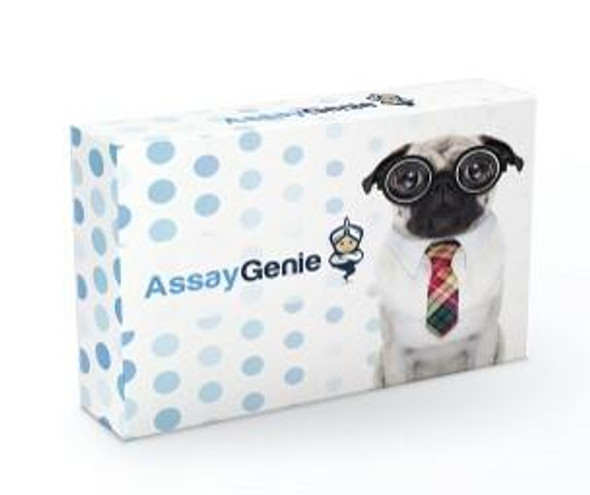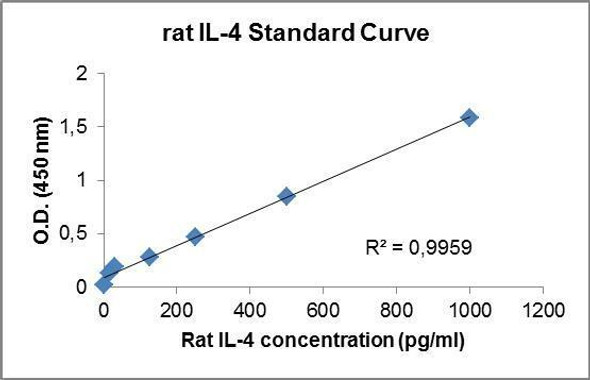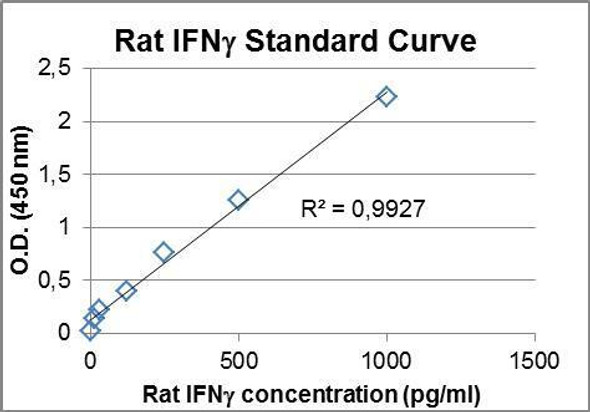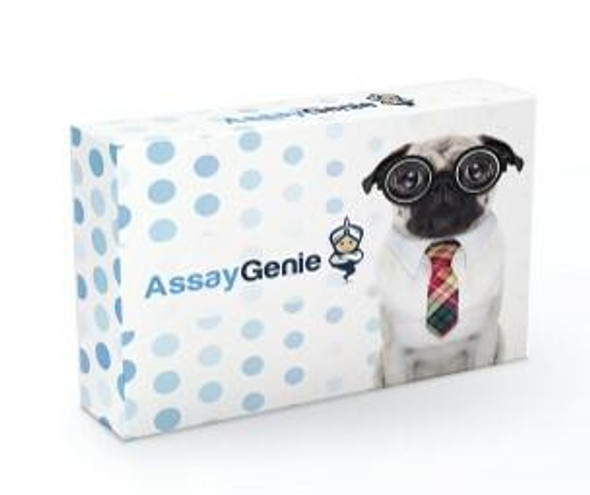Description
Rat CCK PharmaGenie ELISA - Kit Information
Cholecystokinin (CCK) is a peptide hormone of the gastrointestinal system responsible for stimulating the digestion of fat and protein. It is synthesized by I-cells in the mucosal epithelium of the small intestine and secreted in the duodenum, and causes the release of digestive enzymes from the pancreas and bile from the gallbladder. CCK is a family of hormones identified by number of amino acids depending on post-translational modification of preprocholecystokinin, including CCK58, CCK33 and CCK8. CCK is very similar in structure to another peptide hormone gastrin. They share five identical amino acids at their C-termini. CCK mediates a number of physiological processes, including digestion and satiety. Secretion of CCK by the duodenal and intestinal mucosa is stimulated by fat- or protein-rich chyme entering the duodenum. It then inhibits gastric emptying and gastric acid secretion and mediates digestion in the duodenum. It stimulates the acinar cells of the pancreas to release water and ions and stimulates the secretion of a juice rich in pancreatic digestive enzymes, hence the old name pancreozymin. Together these enzymes catalyze the digestion of fat, protein, and carbohydrates. Thus, as the levels of the substances that stimulated the release of CCK drop, the concentration of the hormone drops as well. The release of CCK is also inhibited by somatostatin. CCK also causes the increased production of hepatic bile, and stimulates the contraction of the gall bladder and the relaxation of the Sphincter of Oddi (Glisson's sphincter), resulting in the delivery of bile into the duodenal part of the small intestine. Bile salts form amphipathic micelles that emulsify fats, aiding in their digestion and absorption.
Rat CCK PharmaGenie ELISA - Kit Data
| Product SKU: | SBRS0122 |
| Size: | 96T |
| Application: | Cross Reactivity: This ELISA kit shows no cross-reactivity with any of the cytokines tested: Ghrelin, Nesfatin, NPY and APC. |
| Uniprot: | P01355 |
| Gene ID: | 25298 |
| Gene Names: | CCK |
| Synonyms: | Cholecystokinin (CCK) [Cleaved into: Cholecystokinin-39 (CCK39) Cholecystokinin-33 (CCK33) Cholecystokinin-22 (CCK22) Cholecystokinin-12 (CCK12) Cholecystokinin-8 (CCK8)] |
| Target Species: | Human, Mouse, Rat |
| Compatible Sample Types: | Cell Culture Supernatants, Serum |
| Design Principle: | Competition-based |
| Method of Detection: | Colorimetric |
| Quantitative/Semi-Quantitative: | Quantitative |
| Range: | 0.1-1,000 pg/ml |
| Sensitivity: | 0.2 pg/ml |
| Recommended Dilution: | Human: 4X, Mouse: 4X, Rat: 2X |
| Storage/Stability: | Standard, Biotinylated CCK peptide, and Positive Control should be stored at -20°C after arrival. Avoid multiple freeze-thaws. The remaining kit components may be stored at 4°C. Opened Microplate Wells and antibody (Item N) may be stored for up to 1 month at 2 to 8°C. Return unused wells to the pouch containing desiccant pack and reseal along entire edge. |
Kit Components:
| 1. | Pre-Coated 96-well Strip Microplate |
| 2. | Wash Buffer |
| 3. | Standard Peptide |
| 4. | Assay Diluent(s) |
| 5. | Biotinylated Peptide |
| 6. | HRP-Streptavidin |
| 7. | TMB One-Step Substrate |
| 8. | Stop Solution |
| 9. | Assay Diagram |
| 10. | Positive Control Sample |
| 11. | Capture Antibody |
| 12. | Technical Manual |
Other materials and equipment required:
The Assay Genie Rat CCK ELISA Kit will require other equipment and materials to carry out the assay. Please see list below for further details.
- Distilled or deionized water
- Precision pipettes to deliver 2 ul to 1 ml volumes
- Adjustable 1-25 ml pipettes for reagent preparation
- 100 ml and 1 liter graduated cylinders
- Tubes to prepare standard and sample dilutions
- Orbital shaker
- Aluminum foil
- Saran Wrap
- Absorbent paper
- Microplate reader capable of measuring absorbance at 450nm
- SigmaPlot software (or other software that can perform four-parameter logistic regression models)










